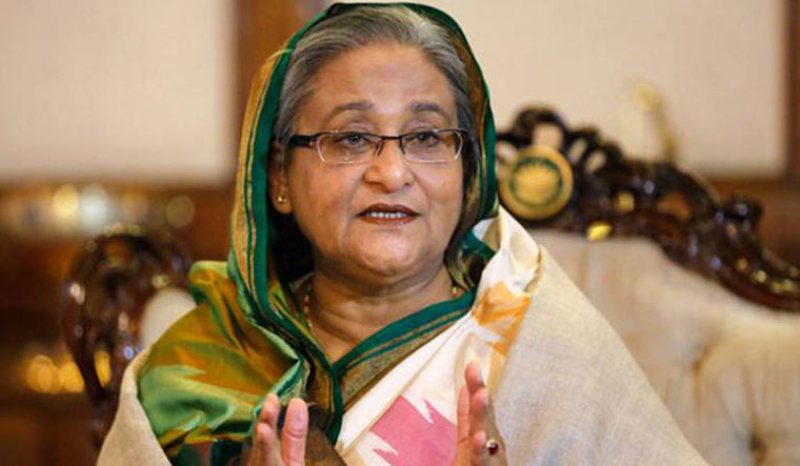Bangladesh’s ousted Prime Minister Sheikh Hasina was on Thursday formally indicted in crimes against humanity during the July mass uprising in the country last year.
The International Crimes Tribunal (ICT) indicted Sheikh Hasina by accepting charges of crimes against humanity filed against her in connection with a mass uprising in which hundreds of students were killed last year.
A three-member panel, led by Justice Golam Mortuza Mozumder, indicted Sheikh Hasina, former Home Minister Asaduzzaman Khan, and former police chief Chowdhury Abdullah Al Mamun on five charges.
Two other members of the tribunal are Justice Shafiul Alam Masud and Justice Mohitul Enam Chowdhury.
Of the three accused, Sheikh Hasina and Asaduzzaman Khan Kamal are absconding, while Chowdhury Abdullah Al Mamun is in police custody.
Mamun has reportedly pleaded guilty and petitioned to turn state’s witness in the case.
Sheikh Hasina fled to India on August 5 after her Awami League government was toppled last year.
Bangladeshi prosecutors at the International Crimes Tribunal formally charged Sheikh Hasina with crimes against humanity in June this year during the mass uprising in the country last year.
Mohammad Tajul Islam, the chief prosecutor at Bangladesh’s domestic International Crimes Tribunal (ICT), had alleged that Hasina orchestrated a “systemic attack” on protests against her government as the trial against her opened on Sunday.
“Upon scrutinising the evidence, we reached the conclusion that it was a coordinated, widespread and systematic attack,” Islam had told the court.
“The accused unleashed all law enforcement agencies and her armed party members to crush the uprising,” he said.
ALSO READ: Election preparations in Bangladesh to be completed by December: Interim chief
On August 5 last year, Sheikh Hasina’s 16-year rule with the Awami League was overthrown in a violent mass uprising.
A fact-finding committee of the United Nations Human Rights Commission estimates that around 1,400 people were killed in the protests.















